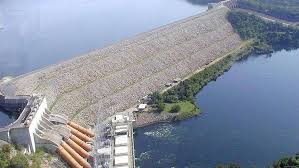 File photo: Volta River Authority
File photo: Volta River Authority
The Volta River Authority (VRA) is to use desalinated sea water for its proposed two 350MW coal-fired plants to be sited at Aboano in the Ekumfi district of the Central Region.
“We are going to use sea water at the facility. We will desalinate sea water just like we have at Nungua in Accra and use it for the proposed plant. We won’t have to rely on the Asaakyere water supply system of the Ghana Water Company Limited (GWCL),” VRA officials said.
For a region that has been grappling with a severe water shortage over the past months, implication of water use for the US$1.5billion China-Africa Development Fund (CADFund) financed project has a significant impact on water quantity and quality for the proposed area for the coal plant.
Coal plants, as thermoelectric power systems, require cooling. Water is used to cool the steam used to make electricity in the power plant; and to control pollution from coal plants. Coal boilers also use small amounts of water for boiler blowdown
The coastal town of Aboano was selected as the ideal location after initial consideration of sites in Domunli, Akwidaa and Komenda.
The coal power project is to be undertaken by the Volta River Authority (VRA) and its Chinese partner, Shenzhen Energy Group Co. Ltd. of China (SEC.
This represents the first phase of developing coal plants by the largest power producer, as it seeks to strengthen the country’s base load and forestall any future shortage of power when existing plants are due for mandatory maintenance.
The plant is to be further expanded either by 4×350MW (or 2×600MW) supercritical coal-fired generating units in the future, as demand is expected to continue increasing.
Current demand for the country currently stands at about 2,225MW and is expected to hit 7,000MW by 2030.
VRA and SEC, after a successful prefeasibility study and design of the plant, have since served scoping notice to allow individuals, groups and organisations with special interest, concerns and expert knowledge on environmental impacts to furnish the Environmental Protection Agency (EPA), VRA and SEC with it.
The country was plunged into two years of erratic power supply brought on by poor water inflow into the Akosombo Lake for hydro-power generation by the 1,020 MW-Akosombo Generating Station. This was compounded by the unavailability of gas from Nigeria via the West African Gas Pipeline and challenges with continuous availability of indigenous gas, which forced the hand of power distributors to ration power.
Government working with power producers and the Ghana National Petroleum Corporation (GNPC) has since secured two emergency power barges to generate about 500MW of thermal power to remedy the power crisis that led to the collapse of many businesses.
The main challenge for power companies over the years has been their inability to cover their cost of operation — given the rather low tariffs and subsidising of power by successive governments. The subsidies were not paid to the power producers, leading to huge debts.
Government this year imposed an Energy Sector Levy to generate enough revenue to pay-off the legacy debts of power companies.